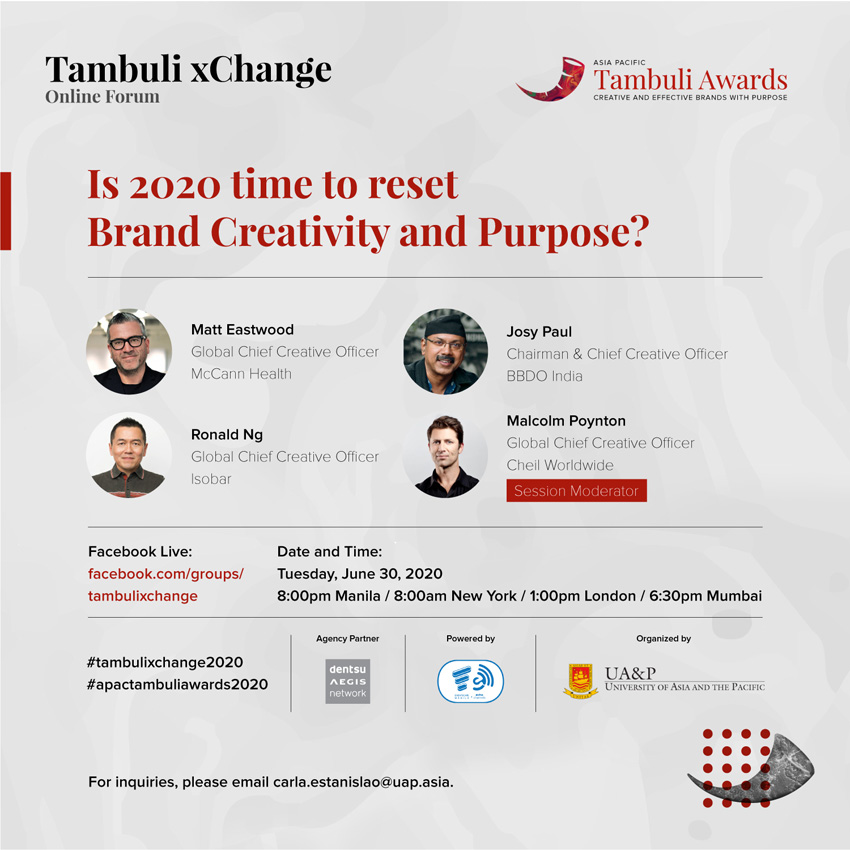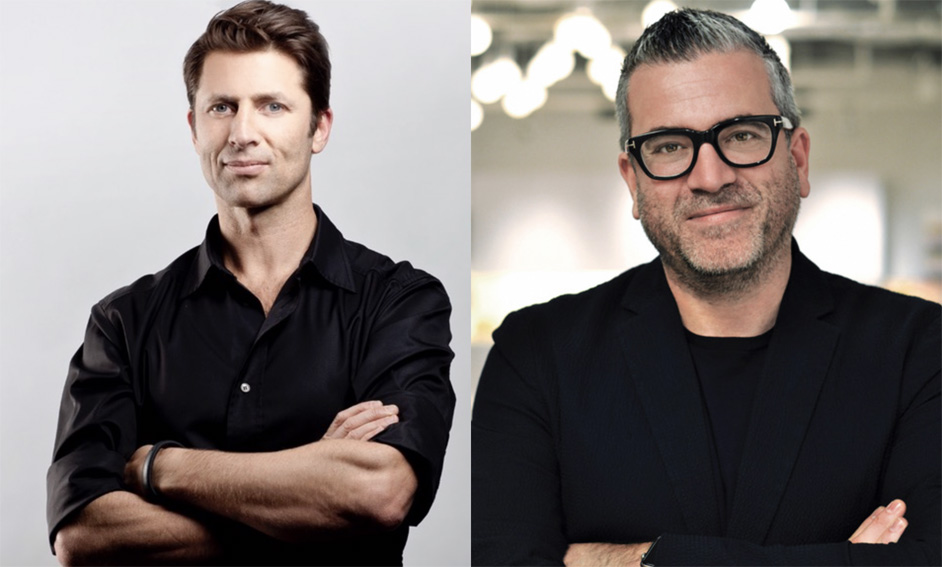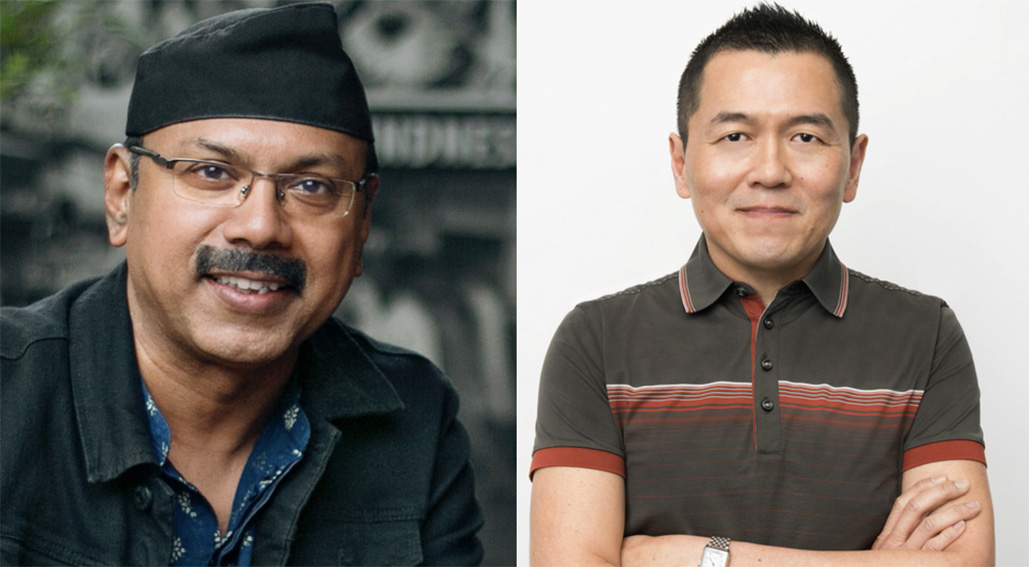Malcolm Poynton Global Chief Creative Officer Cheil Worldwide shares his experience on the Tambuli xChange online forum
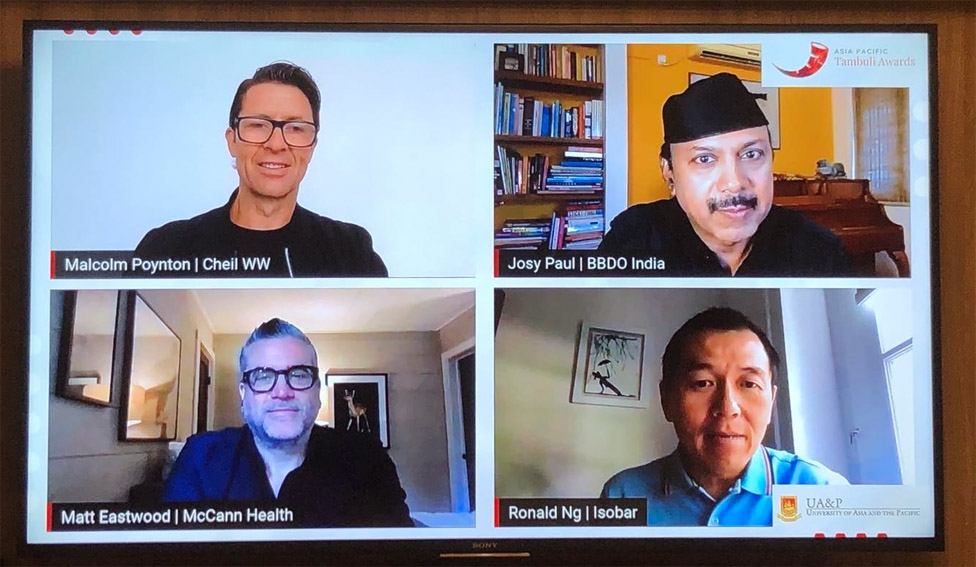
This week the Tambuli xChange online forum was hosted by the Asia Pacific Tambuli Awards with the theme “Is 2020 time to reset brand creativity and purpose?” The discussion was lead by Malcolm Poynton, Global Chief Creative Officer at Cheil Worldwide and here he gives a rundown of the highlights.
If you love the ad industry, brands and this planet we call home, then you’ll surely be a fan of The Asia Pacific Tambuli Awards – a unique industry award show and conference that celebrates “creative and effective brands with purpose”.
Cancelled for 2020 due to the pandemic, Tambuli organisers, The University of Asia and the Pacific instead hosted the Tambuli x Change as an Online Forum.
This week, Tambuli xChange brought together four former Jury Presidents to discuss the question “Is 2020 time to reset brand creativity and purpose?”
Chairman of the Tambuli organizing committee, Dr. Jerry Kliatchko (pictured below) introduced the four of us:
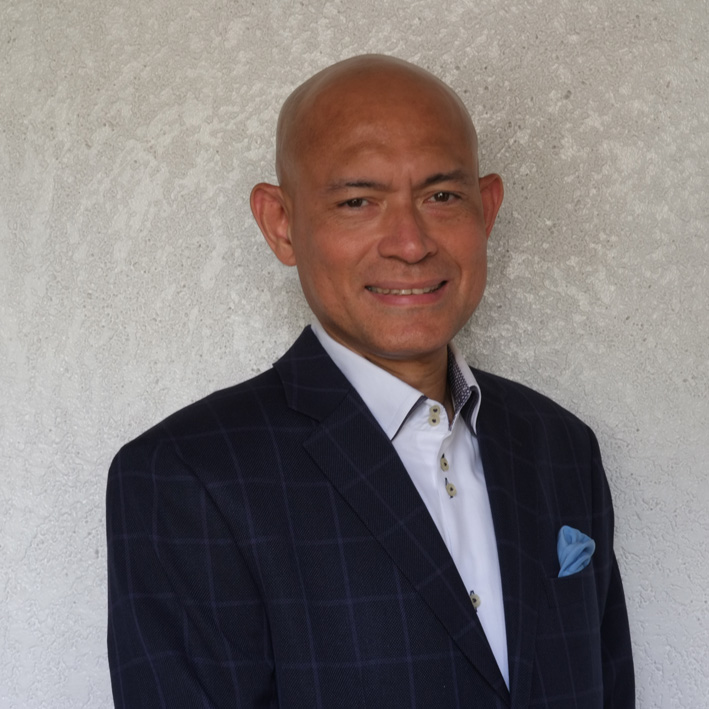
Panel Moderator: Malcolm Poynton, Global Chief Creative Officer of Cheil Worldwide
Josy Paul, Chairman & Chief Creative Officer of BBDO India
Matt Eastwood, Global Chief Creative Officer of McCann Health
Ronald Ng, Global Chief Creative Officer of Isobar.
As moderator, to kicking off, I asked the panel to rewind to March and recall what brand activity impressed at the outset of the Pandemic.
As an example, for me, Nike’s ‘Play Inside, Play for the World’ campaign landed the message so many governments missed. And the brand behaviour backed that up by enabling consumers to inside through free access to all their online training platforms.
Josy Paul: “I saw a lot of confusion, brands trying to align with what the government was saying, and no differentiation. Then I saw the Facebook work [‘We’re Never Lost’ featuring the British poet Kate Tempest] and I cried. It had a message and action.”
Matt Eastwood: “A lot at the very beginning were very similar. The first thing I saw that really stood out was from Dove in Canada. A fantastic spot under the guise of ‘Courage is Beautiful’. The shots of first-responders were a wonderful celebration of the absolute gratitude we were feeling at the time towards people sacrificing their own safety, and Dove put action behind it with donating product to first responders.”
Ronald Ng: “China was one of the first countries to be hit, and I was proud to see our client KFC keeping six restaurants in Wuhan open to serve hospital staff – action on helping first responders, and then introducing contactless delivery very early in February.
As the pandemic rolls on, the data and ‘facts’ change daily and consequently, governments seem less clear and less consistent in their messaging. I’m acutely aware of this in the UK where the government is mocked daily. With that in mind, I was curious to hear if the panel felt brands could credibly do things to fill that space, to make things clearer for people?”
Josy made the point that both brands and governments missed the bigger opportunity to orchestrate a collective effort.
It makes you wonder what may have happened if brands collaborated as they are doing with the Facebook Ad Boycott. Could a collective effort make more meaning for everyone amid the COVID chaos?
On the consumer front, there’s been an obvious behavioural shift during lock-down to seeking either fact-based messages or instant delivery of commodity products at the cheapest price. It begs the question if brands as we know them are still relevant.
Ronald: “At the start [of the pandemic] you just picked whatever was available but as production and supply returns to normal people will pick and choose. The real problem is that they are dealing with job losses, and pay cuts, and overall have less spending power so we really need to understand which are the brands they align with in terms of their beliefs. With slightly less money how do I pick the right brand for my family? The power of brands will rise with that limited spending power.”
This point leads us to the topic of brand trust.
And so, the next question on my mind was if the panel thought now is the time for brands to re-establish, re-define or re-imagine their brand purpose for a likely more frugal post-COVID society.
Matt: “Brands are being judged on how they behaved through this pandemic, and how they continue to behave, and I think this will stay the same for some time…. Brands are very actively listening to what their customers want and pivoting quite quickly… the ones that don’t will suffer in the long-term.”
So, what of the digital world we live in? COVID has accelerated the digitisation of nearly everything, seemingly making five-10-year IT challenges resolved in weeks. At the same time, most things digital are very cold, very techy, and all about the user experience. This was a daily challenge during my time at the digital consulting company Sapient where one finds an engineering and data mindset rather than a more human appreciation and understanding of how to move and engage consumers emotionally. However, with many agencies today having evolved to be more digitally and tech enabled, will we see the empathy being sparked by COVID give rise to a more human approach to digital?”
Ronald: “The key word is human. … what’s important for digital is for technology to take a back seat, blend into our lives. VR is beautiful but hasn’t taken off in a big way as you need a big headset strapped to your head. We talk so much about augmenting reality and technology, when we need to look more at technology augmenting humanity.”
Pre-COVID I was impressed by the disruption Rhianna had brought to the beauty through the launch of FENTY offering 40 shades of foundation (from Albino to dark-skin black colors. Just as Elon Musk has done to automotive with Tesla making electric cars we could only previously dreamed of. Given that chaos creates opportunity, will the post COIVD world demand brands embrace disrupting their own categories to be even more relevant to the new consumer mindset?”
Matt frames it as “a chance to re-imagine… how your brand comes out again and that’s proving to be exciting – pivoting when you need to pivot… It’s going to be a great moment coming out the other side to see what brands look like and how they behave.”
Josy: “It’s also about breaking down. There is an opportunity here, because brands are vulnerable to breakdown, and in so many cases now is the right time, because people are more mindful and sensitive so responsive to this from brands.”
Next up; the ad industry itself. Do we need new routes to creativity and new skills?”
Matt: “People have seen quite quickly that change is possible, and people are starting to have faith in their ability to change again. In the US, we’ve been going through the conversation about Black Lives Matter, and in our industry the need to recruit new viewpoints and faces which we’ve been incredibly bad at doing…. There has to be systemic change… bringing those people into our industry will change the way it works, and the ways we speak to clients. This really could be the moment when it all changes.”
To that point, I believe that we will only get to solve bigger challenges for clients and elevate about glorified execution partners if we bring diversity of gender, race and socio-economic standing together at once – it’s the only way to get to more diverse thinking, period. And that’s what will change the game faster than anything. It’s that simple but could not be more urgent.
Ronald: “Without a more diverse skills background we’ll never get to more diversity in our work. We face the challenge of connecting the dots between artists and scientists to create something we couldn’t five years ago – that’s the opportunity.”
One challenge we face is that the industry relies so heavily today on University graduates for recruitment. Something the likes of D&AD Shift are working to change. And if we look back, we’ll find many of the industry greats did not come from Universities but instead came from the agency mail room and worked their way up. Just as happens in so many successful businesses. So what’s the answer?
Matt: “We can’t sit back and just wait for them to bring the people we want; we have to be active about finding them.”
Ronald: Isobar are “… looking at beyond the traditional spaces.”
Josy: “I’m reaching out to smaller towns and places in the country. It’s work in progress but we want those voices and we’re actively searching.”
Ultimately, COVID-19 has tested the advertising industry like never before and while we’ve all been scoring governments on their response, how have we done. I asked the panel to give the industry a score.
Ronald: “It’s not been good enough. I’d give us a 6. We don’t need to evolutionise, we need to revolutionise.”
Josy: “It’s the time for transformation, and the world is telling us to change but we’re still moving in a linear way. I’d give myself, and therefore the industry, a 4.”
Matt: “I’ll be more optimistic and give a 7. We do have systemic issues but there are so many things agencies have done that have provided me with hope.”
In summary, I’d say, now is the time for brands to take stock of their purpose. To find ways to re-imagine so as to come back in new, more relevant and meaningful ways.
While we on the agency side need to explore opportunities that go far and wide in terms of how creativity can reshape the world. And that goes for the ways in which we recruit talent and how we urgently get a more diverse and dare I say it, eclectic pool of students coming into the industry. We need to stop being spectators of our own industry and get actively involved in making change each day. These unreal times call for real change.
If you missed the discussion you can view it on Tambuli’s Facebook page
